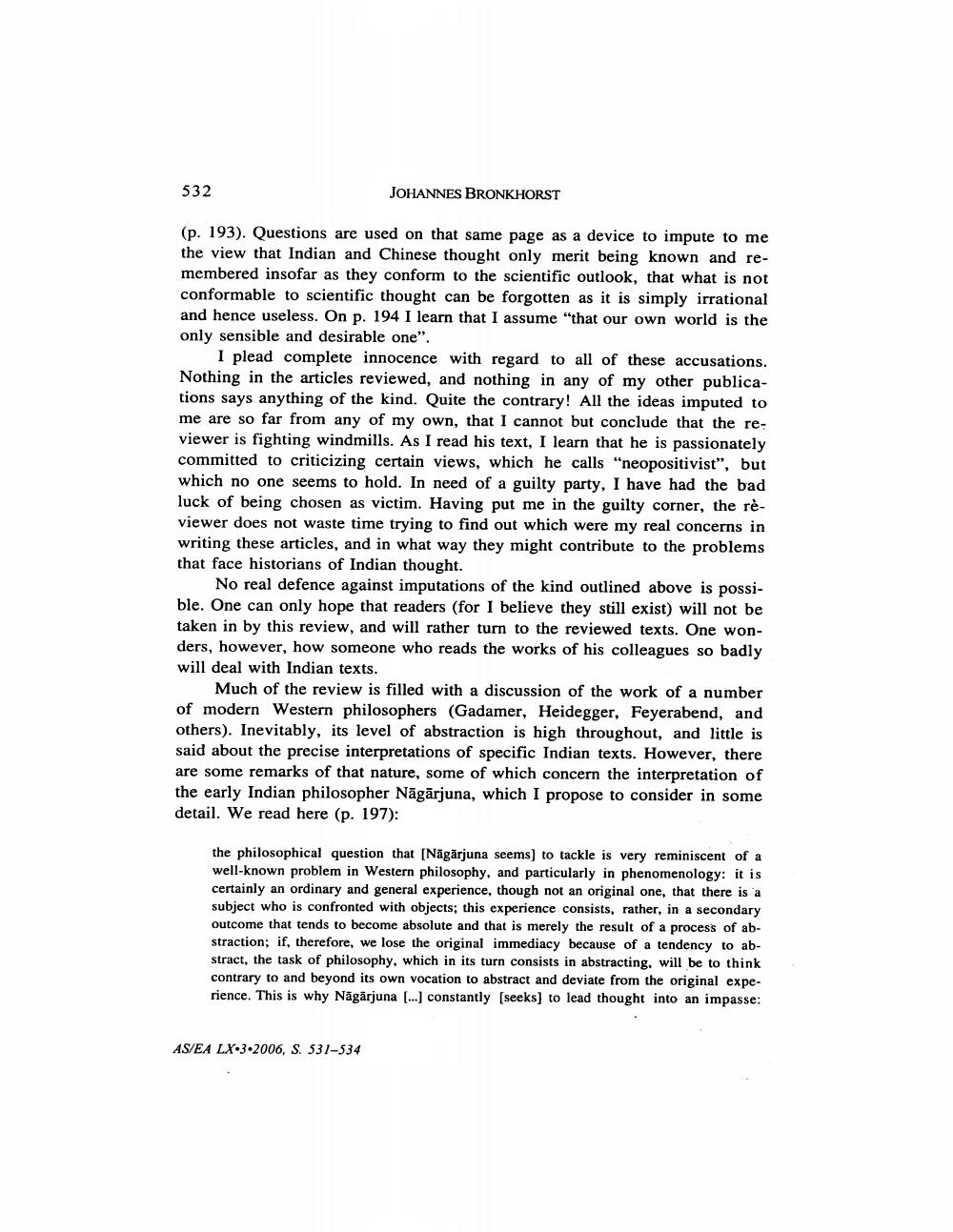________________
532
JOHANNES BRONKHORST
(p. 193). Questions are used on that same page as a device to impute to me the view that Indian and Chinese thought only merit being known and remembered insofar as they conform to the scientific outlook, that what is not conformable to scientific thought can be forgotten as it is simply irrational and hence useless. On p. 194 I learn that I assume that our own world is the only sensible and desirable one".
I plead complete innocence with regard to all of these accusations. Nothing in the articles reviewed, and nothing in any of my other publications says anything of the kind. Quite the contrary! All the ideas imputed to me are so far from any of my own, that I cannot but conclude that the reviewer is fighting windmills. As I read his text, I learn that he is passionately committed to criticizing certain views, which he calls "neopositivist", but which no one seems to hold. In need of a guilty party, I have had the bad luck of being chosen as victim. Having put me in the guilty corner, the reviewer does not waste time trying to find out which were my real concerns in writing these articles, and in what way they might contribute to the problems that face historians of Indian thought.
No real defence against imputations of the kind outlined above is possible. One can only hope that readers (for I believe they still exist) will not be taken in by this review, and will rather turn to the reviewed texts. One wonders, however, how someone who reads the works of his colleagues so badly will deal with Indian texts.
Much of the review is filled with a discussion of the work of a number of modern Western philosophers (Gadamer, Heidegger, Feyerabend, and others). Inevitably, its level of abstraction is high throughout, and little is said about the precise interpretations of specific Indian texts. However, there are some remarks of that nature, some of which concern the interpretation of the early Indian philosopher Nāgārjuna, which I propose to consider in some detail. We read here (p. 197):
the philosophical question that [Nāgārjuna seems) to tackle is very reminiscent of a well-known problem in Western philosophy, and particularly in phenomenology: it is certainly an ordinary and general experience, though not an original one, that there is a subject who is confronted with objects; this experience consists, rather, in a secondary outcome that tends to become absolute and that is merely the result of a process of abstraction; if, therefore, we lose the original immediacy because of a tendency to abstract, the task of philosophy, which in its turn consists in abstracting, will be to think contrary to and beyond its own vocation to abstract and deviate from the original experience. This is why Nagarjuna (...) constantly seeks) to lead thought into an impasse:
AS/EA LX-3.2006, S. 531-534




